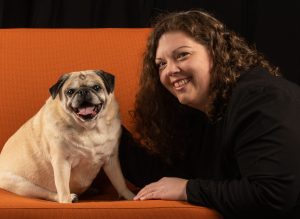Introduction
One does not choose to write a textbook without significant reflection. Why am I doing this? What is the end goal? Isn’t there something else that will work “good enough?”
These are among the many questions an author may ask themselves. For me, I wanted to write a textbook that was 1) accessible to college students of all levels and 2) free. Yes, free.
I had been approached on multiple occasions by the big textbook companies, offering to give me tidy sums from the profits should I write a book for them. Yet, that didn’t sit right.
How could I ask my students to buy something and receive part of those funds? After all, didn’t they already pay tuition to learn with me?
From this, the task of writing an Open Educational Resource (OER) on the topic of evolution and human behavior was born.
Why me?

I am a first-generation college graduate. I grew up in a rural community. I knew college was important, yet I didn’t always appreciate the amount of work it required. And the costs! I once spent over $500 on textbooks for one semester – used and over a decade ago.
Sound familiar?
I am also an anthropologically trained anthrozoologist. This means I study human-animal interactions (anthrozoology), and I do so through a lens that appreciates the evolutionary and the cultural (anthropology). My background includes training in many methodologies, and my interests in the world are shaped by the One Health model. I do not view any individual species as “better” or “smarter.” And I do not see any of us living truly separate from anyone else. Instead, we are connected by our evolutionary histories, our living ecosystems, and our impacts on each other. This includes our physical health, our mental health, and our environmental health.
Charles Darwin wrote: “The difference in mind between [hu]man and the higher animals, as great as it is, certainly is one of degree and not of kind.” Some people struggle with this idea of being derived from each other. I choose to view it as empowering. It invites us to be kind with ourselves and others. It asks us to view all those around us (even nonhumans), as equally valuable in their own way. Combined with the One Health model, Darwin’s quote is a driving force behind my research and my writing – including this textbook.
Okay, so what is this book?
This book is the accumulation of knowledge, lecture notes, and new information into a digestible, introductory format. The goal is not to spend time reading copious pages of content simply to provide you with work. Instead, the book introduces concepts, then provides ways for you to reflect upon this new knowledge. In that way, some might view the book as “short” for a textbook.
It is also written in a much more conversational tone than most textbooks. This is intentional. One of the challenges students have with textbooks is finding the core concepts in the middle of all the writing. Therefore, I consciously chose to write in much the same way I speak in order to make the content clear and concise.
However, the true value of this book is interacting with it. The best way to get the most out of this book is to:
- Review the learning outcomes at the beginning of each chapter.
- Follow links to videos and other content.
- Spend time with the review questions.
- Compare this information with your prior knowledge on the topic.
- Rewrite the definitions of key terms and frameworks in your own words.
- Teach others – this is often the best way to review (study groups are great!).
This book is also an invitation to learn in community, and while I am the guide, I am also a student. I am always open to discussions and new information. If you read something here that is in conflict with something else you have learned, let me know. Send me an email (shellyvolsche@boisestate.edu) or provide me with the journal article, book reference, or other material to review. One of the benefits of writing an OER is that it can be updated on the fly – no major publication revisions needed.
Join me, won’t you?
So there we are. A simple, brief introduction to a simple, brief textbook on a topic close to all of us – whether we embrace it or not. Our evolutionary history, our shared evolutionary history with each other and other animals, brought us to where we are – reading an OER. It can also help us solve some of tomorrow’s challenges, should we be willing to listen and learn from the past.
I look forward to this journey with you.

